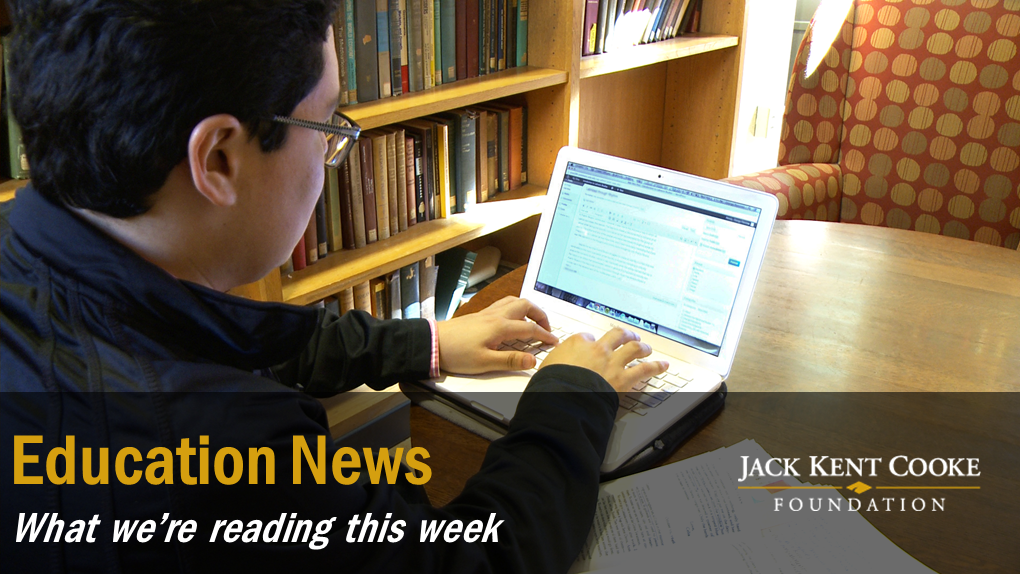August 19: Education News We're Reading This Week

August 19, 2016 – Here’s our weekly roundup of education news you may have missed. Education leaders encourage public schools to identify and expand learning opportunities. Providing free college entrance exams may increase college-ready rates among low-income students, but increasing tuition is a likely barrier to their enrollment.
Elementary & Secondary Education:
-
The Johns Hopkins University Institute for Education Policy finds that 15-45 percent of students in late elementary grades start the school year already performing one or more years above grade level. Its new report questions how schools could be better organized to serve such students and recommends that schools and districts report percentages of above-grade-level performers.
-
D.C. Public Schools leaders hope to expand the district’s study abroad program, after sending 400 students abroad this summer, says Politico. The program has been called “remarkable” for providing financial assistance that allows low-income students to participate.
-
“There is no question that poor children are falling behind their more affluent peers,” writes Nonprofit Quarterly. “We should be learning from schools where poor children are beating these odds and seeing if there are strategies that ought to be replicated.”
Higher Education:
-
States are beginning to experiment with making SAT or ACT exams free to all students. The Chronicle of Higher Education looks at recent research, including one study that found that “requiring all public-high-school students to take the exam increased the number of low-income students scoring as college-ready by nearly 50 percent, but that it raised the number of such students enrolling at four-year institutions by only 6 percent.”
-
An updated report from the Center on Budget and Policy Priorities notes that state funding for higher education is $10 billion below pre-recession levels. At the same time, public colleges and universities have raised tuition and diminished academic opportunities and student services. Rising costs likely deter low-income students from enrolling and “may be pushing lower-income students toward less-selective public institutions, reducing their future earnings.”
Cooke Foundation Highlights:
-
Watch Part I and Part II of NBC Miami’s feature on Cooke Scholar Angel Sanchez. After being sentenced to prison as a teenager, Angel began community college while homeless. Now he is preparing to graduate from the University of Central Florida and attend law school in an effort to realize his goal of becoming an attorney.
-
At least 57,000 college students and 1.7 million children ages 12 to 17 are homeless in the United States. Executive Director Harold O. Levy calls on colleges and all levels of governments to work together to end this national tragedy in The Huffington Post.
-
Another opinion piece by Levy in The Hill outlines how the college graduation gap between low-income and more affluent students perpetuates inequality.
-
WHAG-TV in Western Maryland interviews Cooke Scholar Luis Rosales, who is heading to Georgetown University this fall on the Undergraduate Transfer Scholarship. “I eventually see myself representing my community, whether it be Congress or State Legislature,” says Luis.
-
Cooke Scholar Yasmine Arrington contributes thoughts in Education Dive on how schools struggle with addressing student and parent incarceration.